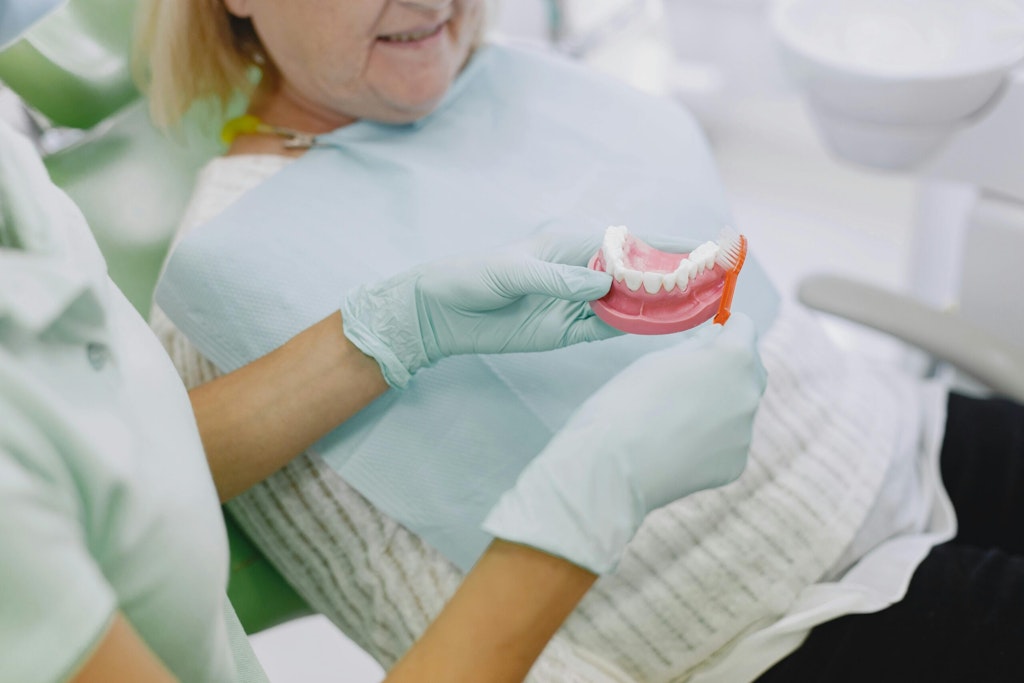Mouth matters: Humility can help secure oral hygiene excellence for providers
Last updated on 1 September 2025

Providing excellence in care is the mandate of providers across Australia. From nutritional food, supported exercise and tailored medical assessments, the procedures in place within daily care plans seek to uphold systemically assured quality of care. However, an area that is clinically overlooked in that routine of care is that of oral hygiene. Dr Joy Poskozim, operating in Chicago in the U.S., recently voiced a concerning finding of extreme poor oral hygiene for a resident, and importantly, the disappointing response to an opportunity to improve from a provider. Core to the full health and dignity of residents is the maintenance of oral hygiene. Executive and clinical leadership across providers must be acutely aware of, and pivot towards, bolstering oral hygiene routine checks.
Poskozim was contracted to perform dental care on residents within a residential aged care facility. What she found poses significant concerns for providers across the world, reinforcing the need for robust checks that include dental hygiene as a central component. The doctor noted that her “extremely docile patient living with a form of dementia (never officially diagnosed)” had, “never had her upper complete denture removed for cleaning in the 18 months” of being a resident in “this skilled nursing facility in a very affluent area.”
The result of the protracted period without oral checks and lack of subsequent cleaning, is that the resident’s “lower teeth were filled with broccoli to the point that the amount of food in her mouth was a choking hazard.”
Clinical experts across the globe have conducted studies securing extensive findings to support the critical nature of oral hygiene for the welfare of human beings. North American research, “shows that oral health is critical, as the teeth and mouth are not only an integral part of the body, but also, they also support and enable essential human functions.” Elaborating the researchers state, “that is, oral health has a multidimensional nature, as it includes the physical, psychological, social, and environmental domains that are essential for overall health and well-being.”
Dr Poskozim puts it simply, “it’s really difficult to eat without teeth.” She explains, “without the ability to chew, without the ability to eat, it’s difficult to have proper nutrition, it’s very difficult to maintain our immune systems…especially as seniors become immune-compromised, and exposed to more co-morbidities.”
She also addresses the critical community impact of having clean and healthy teeth, “there is the social element”, raising the ubiquitous human condition, “we love being able to smile.” She notes how a resident in a dementia facility was clear and articulate to her when the resident’s upper dentures were taken away for cleaning, “she would not be eating with friends until the dentures were returned.” Poskozim heard and saw how critical it was for a senior, even through the challenges of dementia, to have a presentable smile and mouth to eat in a social setting. She notes that, “this cleaning was definitely a rush job” as she wanted to honour the importance of supporting the resident to socialise and eat well, gaining valuable and essential nutrition for the resident’s soul and body.
It is in how Poskozim was responded to, by clinical leadership at the provider, that had the doctor and the wider aged care community concerned. In the effort to prevent this situation from unfolding again, the doctor directly approached the assistant director of nursing for the facility. She noted that what she had found, so much broccoli that could constitute a choking hazard, was reasonably considered “neglect”, an assessment that she was promptly told was “too harsh”.
In addition to 18 months without a denture cleaning, Poskozim did not see any evidence of the resident’s organic lower teeth being brushed, and “she did not have a clean toothbrush.”
The disappointing response to her approach to leadership is a reminder for the dynamic need for improvement, and humility, in the striving for excellence in aged care. In the complex needs of hundreds of residents, excellence in care is a significant challenge. How much more is the need to receive guidance, from highly trained front-line staff, in systemic improvement, to prevent damaging situations to impact vulnerable residents.
While “neglect” is a word that providers are loath to use, in hearing first hand from front-line staff who have expertise and insight, and pivoting accordingly, providers can systemically prevent repeat occurrences. Dr Poskozim wondered why clinical leadership didn’t choose to respond, to her concern and proof, by pivoting to train the resident’s caregivers in oral hygiene instruction and awareness.
While the executive director of the facility stated to the doctor that the resident’s daily care plan would be updated, her concern intensified, “I thought brushing teeth was part of one’s [residents] daily ADL’s [care plan]?”
Academics assert that, “without a comprehensive and multidisciplinary approach to medical science that includes dental and oral health, our public policies cannot provide the best answers to health promotion, disease prevention, early detection, and treatment.”
Core to the treatment of a resident, to ensure excellence of care, consistent oral checks are warranted to support the full physiological and psychological needs of a person.
Oral health is integral to the health of the whole human, supporting systemic care in this area is critical for residents and worthwhile for all levels of leadership. It is in utilising feedback from all sources even if uncomfortable, including front-line staff that are experts in their areas of care, that executive and clinical leadership can prevent future instances of sub-par care, securing systemic improvements for excellence in the routine.